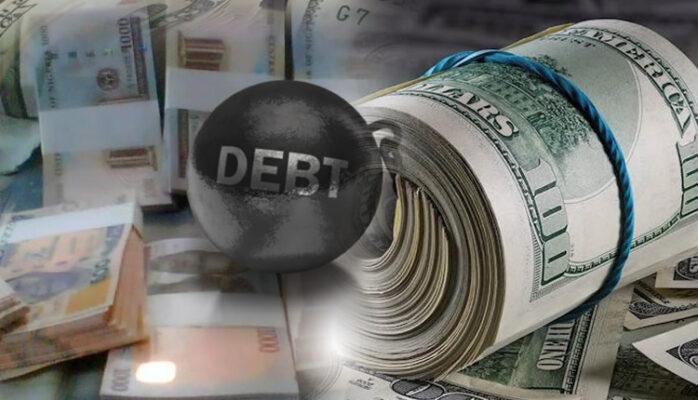Nigeria’s debt service payments have surged by a staggering 49.2 percent year-on-year, reaching $2.01 billion in the first four months of 2025, compared to $1.34 billion recorded in the same period in 2024. This alarming rise was revealed in the latest International Payments data released by the Central Bank of Nigeria (CBN), underscoring the mounting pressure on the country’s fragile economy.
The sharp increase in debt servicing costs highlights Nigeria’s growing struggle to meet its external obligations, especially in the face of persistent foreign exchange shortages and a weak revenue base. Economic analysts warn that the escalating debt payments are unsustainable and could trigger a full-blown fiscal crisis if left unchecked.
This trend aligns with earlier warnings by the International Monetary Fund (IMF), which in its 2025 outlook declared that Nigeria’s debt sustainability is at risk due to chronic fiscal shortfalls. The IMF projected that the country’s fiscal deficit will worsen, with the government expected to spend 4.5 percent more than its total earnings in both 2025 and 2026. This compares unfavorably to 2024, when Nigeria’s General Government Overall Balance was already in the red at -3.4 percent of GDP.
Fiscal experts note that the widening deficit, driven by low oil revenue, poor tax collection, and rising expenditures, means the federal government will increasingly depend on borrowing to finance its operations. This dependency will not only inflate the national debt but also expose the country to heightened financial risks, especially if borrowing costs spike due to rising interest rates or a loss of investor confidence.
Related Articles:
- Delta APC hails Tinubu over IMF debt repayment, says It’s a turning point for Nigeria’s economy
- 7 oil companies agree to pay $37.4m debt to Nigeria’s Federation account by August
- Nigeria’s World Bank loans to hit $9.25bn in 3 years
The General Government Overall Balance, a key economic indicator, reflects the gap between total government revenue and expenditure. Nigeria’s growing negative balance reveals an economy that is bleeding cash, with higher spending on debt interest, subsidies, and public sector salaries outpacing inflows from oil sales and taxation.
As revenue continues to underperform and fiscal deficits deepen, Nigeria finds itself trapped in a cycle of borrowing and repayment, raising concerns over long-term economic stability. Stakeholders are calling for urgent fiscal reforms, including diversification of revenue sources, cutting down on wasteful spending, and implementing policies that boost investor confidence and reduce dependence on external debt.
The surging debt service bill is more than just a number, it’s a warning sign that Nigeria’s economic health is deteriorating rapidly. If swift and decisive action is not taken, the country risks sliding into a debt trap that could jeopardize its financial future and socio-economic progress.
